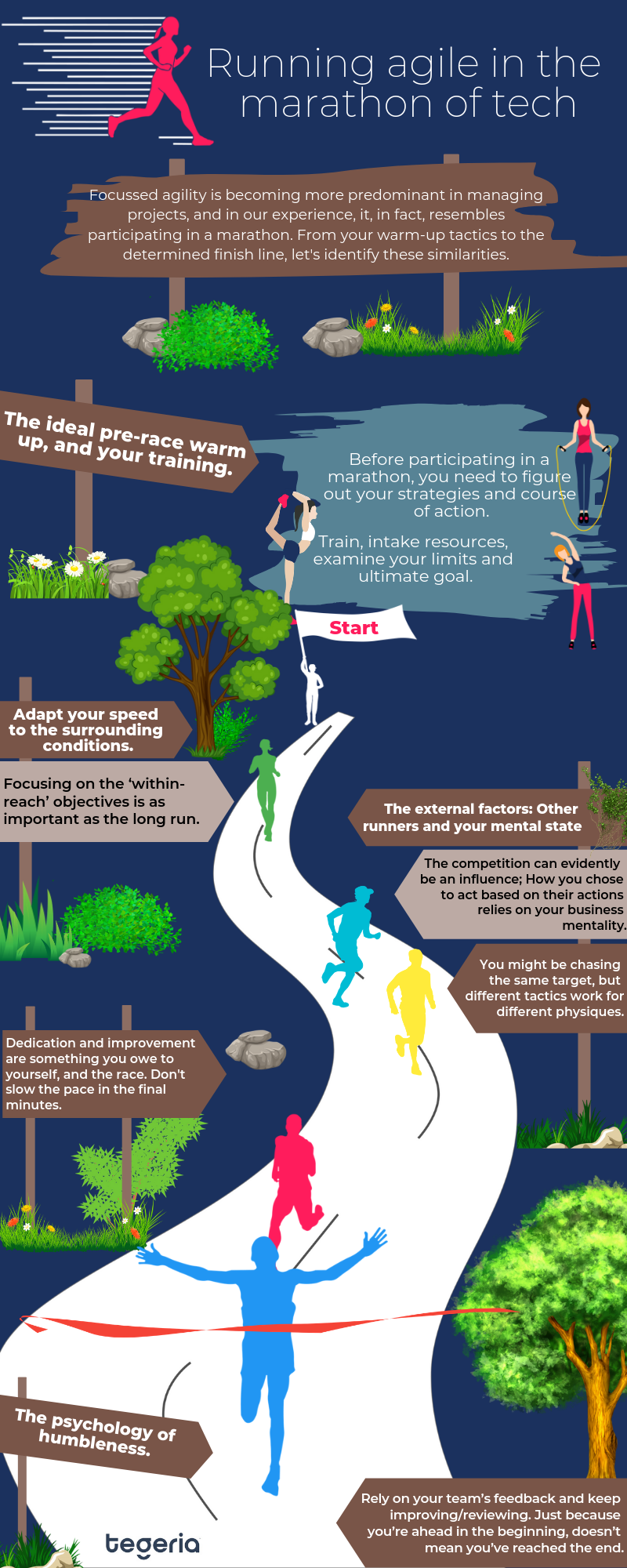Running agile in the marathon of tech

Focussed agility is becoming more predominant in managing projects, and in our experience, it, in fact, resembles participating in a marathon. From warming up your muscles to avoid injury to applying the ‘mind over matter’ concept to reach the finish line, thinking of it in this context can give a better understanding of how it all works.
The ideal pre-race warm up, and your training.
Resources and precautions are important in any type of industry, but they’ve also shared attributes to both concepts. Before taking part in a marathon, you need to figure out your strategy and course of action. What are stamina, fitness, and muscle endurance like? What meal and workout plan best fits your body?
Once you’ve answered these basic questions to what the bigger picture will entail, it’s time to break it down into manageable tasks. Agile Tips
Train, absorb resources, examine your limits, and keep your eye on the ultimate goal.
Adapt your speed to the surrounding conditions.
It’s quite common to get fixated on reaching the finish line, but it’s also about adjusting to the task at hand. No outcome is ever guaranteed in the world of sports. Sure, before you started the marathon the goal was to run at a 10-minute speed per mile. However, presently your hydration levels might be low, or your muscles are cramping-surprises and shifts in your schedule might happen.
Focusing on the ‘within-reach’ objectives or the precise ongoing moment is as important as the long run.
The external factors: Other runners and your mental state
Other contestants are undeniable influences in any sort of completion. How you chose to act based on their decisions and actions relies on your business mentality.
If a competitor decides to make a sprint 30 minutes in, or switch from one solution like Kanban to Scrum and have multiple boards, will that affect your judgment? What makes you different from the other runners and their physical abilities?
Even though you might be chasing the same target, different tactics work for different physiques. This means not getting caught up with everything around you.
The psychology of humbleness
There needs to be a healthy line between validating the strengths your plan has, whilst also not getting too self-assured about it. Rely on your team’s feedback and keep improving/reviewing. Just because you’re ahead in the beginning, doesn’t mean you’ve reached the end. Remember, that’s how the rabbit got tricked by the turtle.
On the other end of the spectrum, even though you might be a little behind and the lasting minutes are nearing, that doesn’t mean you give up.
Dedication and improvement are something you owe to yourself, and the race. All those hours of planning and training shouldn’t go to waste.




